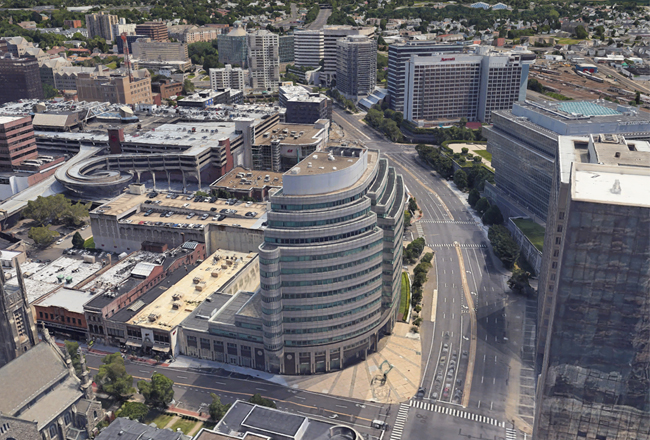U.S. Rep. Jim Himes of Connecticut is predicting Senate passage of the latest federal Covid relief package “by this weekend” ”“ though he also believes it will be for less than the proposed $1.9 trillion.
 Addressing the Norwalk Chamber of Commerce this morning, the congressman acknowledged that the American Rescue Plan (ARP) Act of 2021 will not include raising the minimum wage to $15 per hour ”“ it has stood at $7.25 per hour since 2009 ”“ but that it will still accomplish much of what it set out to do.
Addressing the Norwalk Chamber of Commerce this morning, the congressman acknowledged that the American Rescue Plan (ARP) Act of 2021 will not include raising the minimum wage to $15 per hour ”“ it has stood at $7.25 per hour since 2009 ”“ but that it will still accomplish much of what it set out to do.
Among ARP”™s provisions:
- Extending expanded unemployment benefits with a $400 weekly supplement through the end of September; those benefits had been set to expire on March 31.
- $1,400 direct payments to qualifying persons (individuals with incomes of $75,000 or less and couples with incomes of $150,000 or less, plus $1,400 for children and adult dependents).
- $20 billion for a national Covid-19 vaccine program.
- $7.6 billion to hire 100,000 public health workers.
- Emergency paid leave for over 100 million American employees.
- Tax credits for families to offset up to $8,000 in annual child care costs.
- $15 billion in loans to small businesses, $25 billion in grants to bars and restaurants, and $25 billion for the Paycheck Protection Program.
While not saying how shy of $1.9 trillion the package will ultimately be, Himes said that the original sum was “maybe a little bit on the big side,” but that was preferable to the $787 billion bill passed by Congress in 2009, “which proved to be inadequate to kickstart the economy.” Himes said he would prefer to err on the side of too big rather than too little.
He further said that roughly $1.5 billion in the Small Business Administration”™s Paycheck Protection Program (PPP) is still available.
The 14-day window prioritizing the smallest of the small businesses (those with fewer than 20 employees) closes on March 9 at 5 p.m. During that time, the SBA is only accepting submissions of PPP applications from participating lenders. PPP applicants apply through their lender, not the SBA.
The PPP is open until the Congressionally-set deadline of March 30.
Himes said he was “pretty satisfied” with how the federal government has responded to the Covid crisis since December, and noted that Connecticut”™s recovery has gone pretty well. Federal aid has helped mayors like Norwalk”™s Harry Rilling “close the gaps” in economic shortfalls, he said, while the state”™s supply and administration of vaccines has been laudable ”“ although “we”™re still losing 1,500 Americans a day.”
The congressman predicted that major bills addressing infrastructure and immigration will be the Biden administration”™s next priorities, and could arrive within the next two to three months. The infrastructure bill will go beyond bridges, highways and railways to include affordable housing and broadband accessibility, he said.
Noting that immigration is “one of those topics that gets people”™s political dander up,” Himes said he expected the administration to “normalize the status of the roughly 1 million Dreamers” in the country. As for the nation”™s 11 to 12 million undocumented aliens, Himes said that the White House and Congressional Democrats”™ plan to allow them to apply for a green card and, ultimately, citizenship involves a “fairly lengthy process,” of up to about nine years.
Democrats don”™t want open borders, he said, but neither do they want physical border walls.
While he repeatedly said he didn”™t want to get political, Himes did use a significant portion of his roughly one-hour session to do just that. “I”™m very, very happy that tempers are down” since the Jan. 6 insurrection, he said, though he added that he expects the divisions expressed by and at that event to continue for at least the next couple of years.
Since Democrats need 60 votes in the Senate for most of their programs ”“ and Republicans have so far shown little interest in cooperating on most issues ”“ “there will be pressure on (Senate Majority Leader) Chuck Schumer (of New York) and others to throw the filibuster overboard,” he said.
Himes went on to say that the media has helped promote political divisions among the populace, with the likes of Fox News and MSNBC providing “different realities and different sets of facts” to loyal viewers.
The present reality, where one party”™s disagreement with the other leads to questions about loyalty and patriotism, must be addressed, Himes said, lest the country sees “a lot more loony here in Washington.”
Himes also suggested that the states”™ primary systems need revision, given that turnout at those elections is usually mostly by “deep blue” or “deep red” voters, which results in a situation where you “kind of can”™t get crazy enough.”
Instead, Himes said, something like California”™s so-called “jungle primary” ”“ where voters can select any candidate regardless of party, with the top two vote-getters advancing to the general election ”“ would achieve “much more moderate results.”
















